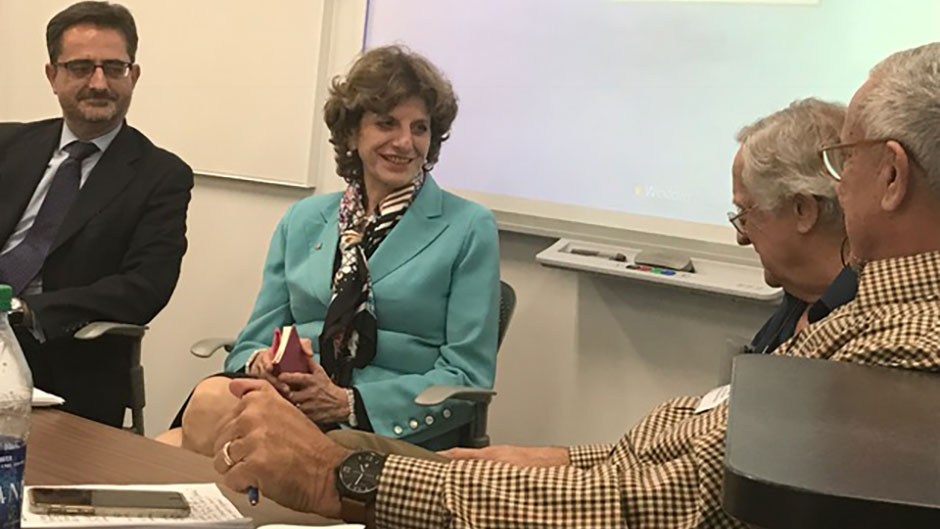Outside pressure from charter organizations, such as the Organization of American States, could play a role if those organizations clearly defined what a breakdown in democratic freedoms entailed and issued sanctions against the government of President Nicolas Maduro.
These were some of the conclusions offered by Felix Beltran of Eastern Washington University and Carolina Zaccato of the Universidad de San Andres in Argentina, two panelists at the all-day conference “Latin American Challenges: The Role of the European Union,” sponsored by UM’s European Union Center and the Institue for Advanced Study of the Americas.
Joaquin Roy, director of the European Union Center, welcomed about 30 students, academics and visiting professors to a large classroom in the 1300 Campo Sano building on UM’s Coral Gables campus. UM’s new vice president for hemispheric and global affairs, María de Lourdes Dieck-Assad, also dropped by.
Scholars from several universities presented papers ranging from “Regionalism and the European Union” and “Inter-American Integration” to the crisis in Venezuela and the status of Cuba in the hemisphere.

